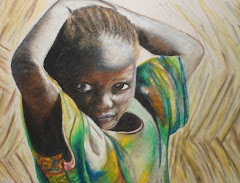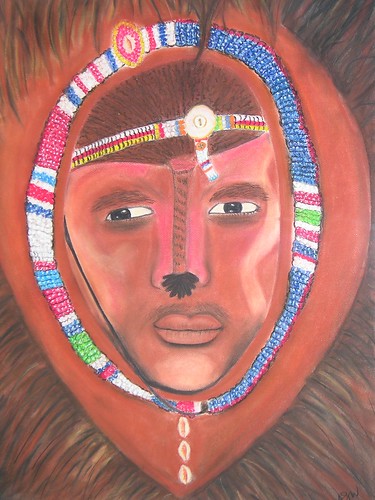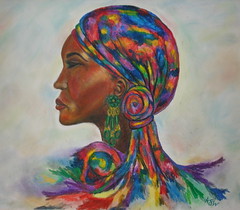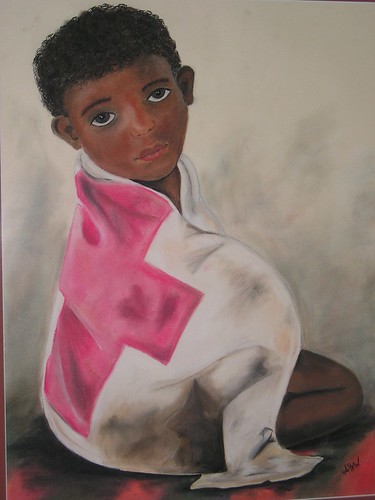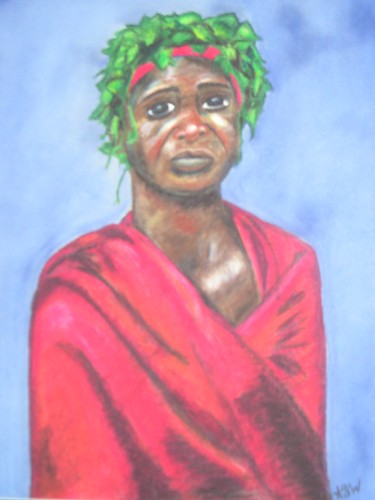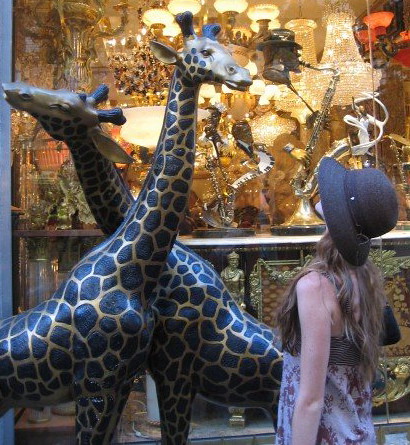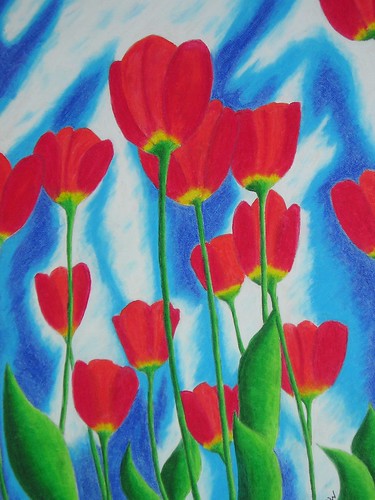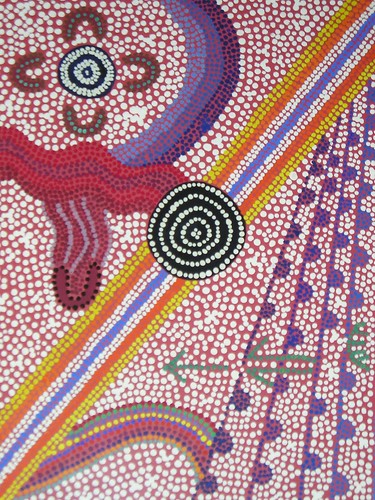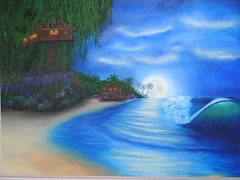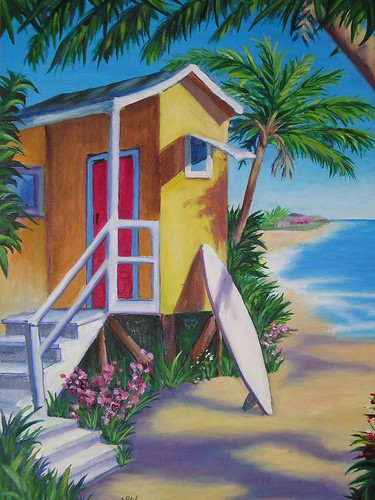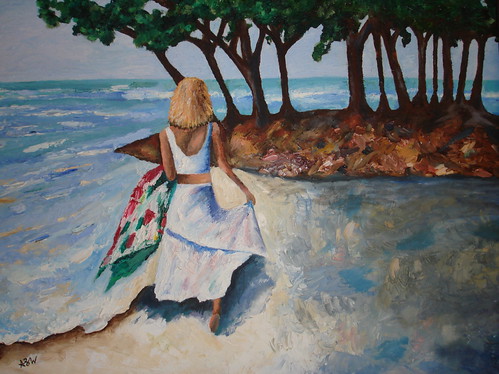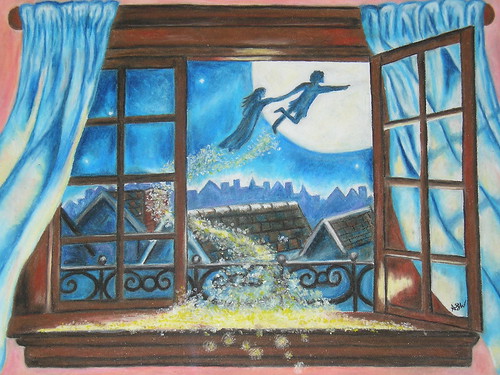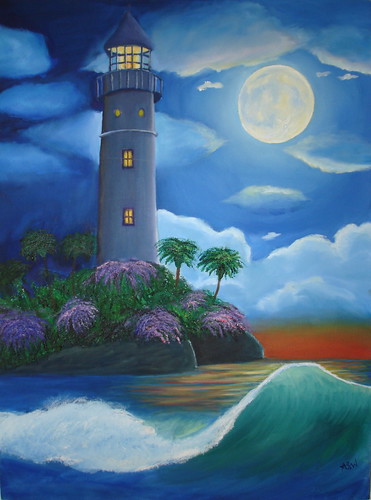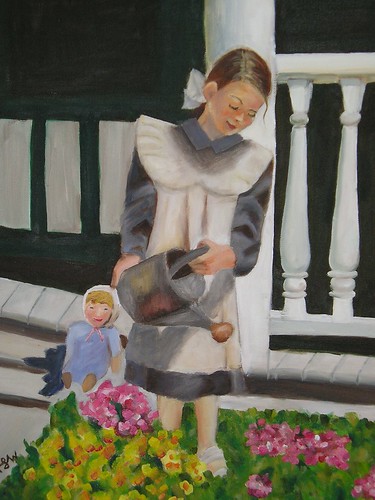Sunday, December 14, 2009
It was the day before our flight back to the US and Miriam and I had one last adventure ahead of us. She had read about an E-waste scrap yard, aka dumpsite, in Accra and wanted to see if we could find it. We once again jumped in the back of a trotro, not really having any idea where we were headed, but as usual people we met on the way pointed us in the right direction. We went from one trotro station to the next, finally figuring out which one had cars that would drop us off near the waste site. We told people we were trying to get to Agbogbloshie – the name of the scrap yard (yeah, try saying that three times fast!). We were directed to a trotro in the far corner of the station. It was a trotro unlike any other I had ever been inside. The doors opened in the back of the van and there were no windows and no way to communicate with the driver. There were benches rigged to both sides of what felt like the back of a cargo container. The van was full except for one seat. We had no idea when the next car would come so we told the mate that we could make it work. He seemed slightly amused as he watched Miriam and I climb over the other passengers and squeeze ourselves into the tiny space left in the middle. Their faces changed from confusion to surprised approval as I sat down and motioned for Miriam to sit on my lap.
Once we were on the road, I finally had a chance to survey the other people in the car. There was a man in long pants and a tattered dress shirt, an older women with crocked teeth smiling at us, a baby strapped to the back of its mother – head bobbing up and down with the movement of the car and of course a number of beautiful women. There was one woman in particular that I literally couldn’t take my eyes from. She was breathtakingly beautiful. She wore a typical full length Ghanaian dress, tight around her hips and flared at the ankles. Her head was covered with a piece of matching cloth tied up and knotted around her hair. I remember thinking that she looked so calm and glamorous sitting in the back of that car. I imagined where she was going – it wasn’t Sunday so it couldn’t have been church. A party? Maybe a wedding. Ya, that’s it, a wedding. The trotro came to a stop and brought my daydreaming to a halt. One by one we filed out of the van, thankful for the fresh air. Now what? We had no idea where we were going and we weren’t exactly sure how to tell people we were looking for a waste site. We decided to wander. We walked only for a couple of seconds before we noticed trash piled alongside the road. I glanced across the street at what looked like a river of sewage lined with trash and metal parts. We had found it.
 We walked into the scrap yard – a mixture of dirt and broken computer parts under our feet. The smell of burning trash and plastic welcomed us. We were both in sandals. Maybe I should have worn shoes? A little boy running around with bare feet interrupted this thought. There were broken motherboards and CDs, discarded bicycle frames, refrigerators, broken cars, rusting piles of metal, and rejected ovens and computers. We walked past a group of young men behind a gated off section of the yard. The sound of hammering and work stopped as they saw us approach. A couple of the braver ones came running out to greet us. I wasn’t sure how we were going to be received – as foreigners? intruders? I should have known we would be treated like friends. We couldn’t communicate with words and as we held out our hands to greet the young men, they hesitated. One of the men showed us his palms – they were covered in filth from working with the scrapes and wires. My heart sank a little as I glanced at my own perfectly Purell-ed hands. He didn’t want to get them dirty with his own. Instead they smiled and waved as we continued further into the yard.
We walked into the scrap yard – a mixture of dirt and broken computer parts under our feet. The smell of burning trash and plastic welcomed us. We were both in sandals. Maybe I should have worn shoes? A little boy running around with bare feet interrupted this thought. There were broken motherboards and CDs, discarded bicycle frames, refrigerators, broken cars, rusting piles of metal, and rejected ovens and computers. We walked past a group of young men behind a gated off section of the yard. The sound of hammering and work stopped as they saw us approach. A couple of the braver ones came running out to greet us. I wasn’t sure how we were going to be received – as foreigners? intruders? I should have known we would be treated like friends. We couldn’t communicate with words and as we held out our hands to greet the young men, they hesitated. One of the men showed us his palms – they were covered in filth from working with the scrapes and wires. My heart sank a little as I glanced at my own perfectly Purell-ed hands. He didn’t want to get them dirty with his own. Instead they smiled and waved as we continued further into the yard. The river of sewage seemed to separate the site into two parts: the side on which the e-waste was dumped and kept, and the side on which the people live. On the side opposite of where we stood, shanties lined the ‘river’. People actually live here. Raised their families here. This was their backyard. We noticed a small makeshift ‘bridge’ (slats of wood) connecting one side to the other. As we got closer, another group of young boys motioned for us to follow them across. Needless to say we both hesitated, imagining ourselves falling in the smelly river of human and manmade waste. We carefully balanced on the first board. One of the boys looked back and said encouragingly “It’s okay. Go small small” translating into take it slow, one step at a time. We made it across the bridge and climbed up the edge of the embankment. We walked along the front of the shanties. Some images that stuck with me: a small boy defecating on a pile of burned trash, a group of women sitting around a table playing a board game, a little girl rummaging through a mound of waste – a red streamer around her neck.
The river of sewage seemed to separate the site into two parts: the side on which the e-waste was dumped and kept, and the side on which the people live. On the side opposite of where we stood, shanties lined the ‘river’. People actually live here. Raised their families here. This was their backyard. We noticed a small makeshift ‘bridge’ (slats of wood) connecting one side to the other. As we got closer, another group of young boys motioned for us to follow them across. Needless to say we both hesitated, imagining ourselves falling in the smelly river of human and manmade waste. We carefully balanced on the first board. One of the boys looked back and said encouragingly “It’s okay. Go small small” translating into take it slow, one step at a time. We made it across the bridge and climbed up the edge of the embankment. We walked along the front of the shanties. Some images that stuck with me: a small boy defecating on a pile of burned trash, a group of women sitting around a table playing a board game, a little girl rummaging through a mound of waste – a red streamer around her neck.We walked past a group of men and women sitting on a bench. To my amazement one of them was the beautiful woman from the trotro. I was shocked to see her in her stunning dress and jewelry sitting in the middle of the scrap yard. She motioned for us to come and join them. We sat down on the bench and spent the next couple of minutes trying to remember as much Twi as we possibly could. After we ran out of greetings I clumsily blurted out “Wo ho ye fe paa” – you are very beautiful. The women smiled and blushed. Her friends laughed but agreed. We waved goodbye and continued on. There was a large truck overflowing with men and flags – red, white, back, and green. The sound of a bullhorn told us it was part of an NDC rally (the presidential election was still going on at this time).
I’m not sure what I had expected, but as we walked through this waste town I felt more and more confused. I couldn’t see the toxic chemicals, the chlorinated dioxins, or the phthalates that were slowly poisoning these people. All I could see was life. People doing the best they can with what they have. People welcoming strangers into their home. I don’t know when in my mind these people whom I had heard about, burning electronic cables, started being casualties instead of people. While Miriam and I walked out of the scrap yard I made a promise to myself: No matter how awful or unfair someone’s situation, no matter how hard people fight and fail to change it, never again will I assume that a person is a casualty, a victim, or a martyr. Never again will I assume that a person is anything less or different than a human being living his life the best way he knows how.
I am reminded of my Cameroonian friends Flynn and Brian and how they didn’t know me, but they took care of me. “You are my sister and I am your brother” was the only possible explanation I received or needed. Reflecting on this almost two years ago, I wrote, “We are family because we are human beings - we share a world, a history, and a vision.” Today I am a little more pragmatic and maybe a little less naïve. I have such mixed feelings on what actions foreigners, especially westerners, should take in order to “Save Africa” (See previous post). However, I do hope that someday we can stand up to the electronic companies in developed countries that are poisoning Ghanaians in Agbogbloshie, not because they are helpless victims, but because they are people, which make them family.
For more information:
Download full Greenpeace document here
Ghana's growing e-waste trade, BBC
UK's e-waste continues to be dumped in Ghana, Nigeria despite public outcry, Ghana Business news
More videos







